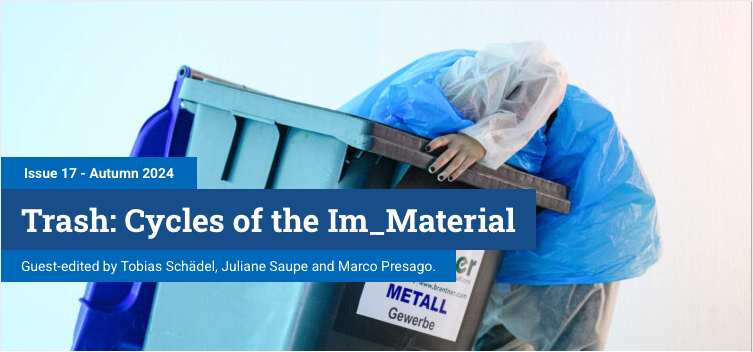All That's Left Behind
Black Ecological Interventions on Waste and Plastic
DOI:
https://doi.org/10.22029/oc.2024.1440Keywords:
Black ecologies, plastics, colonialism, futurity, disposabilityAbstract
This _Article explores the racial and geographic dimensions of disposability and extractive use to conceptualize the contemporary relationship among waste, plastics, and people, particularly in the U.S. South. In their essay, “Mapping Black Ecologies,” JT Roane and Justin Hosbey argue that the eco-social knowledges within Black Southern and other African diasporic communities must frame interventions in the face of environmental crises. As a discipline, Black Ecologies offers a lens to analyze eco-social hauntings across space, time, and matter, providing flight paths beyond ecocidal futurity. Environmental justice scholarship demonstrates that the materiality of waste definitively and disproportionately impacts Black health. What is considered trash today is undoubtedly tied to a historical continuum of disposed-of matters, animate and otherwise, that precedes and exceeds a myopic understanding of ‘trash’ as plastic or other material waste. We argue that contemporary pollution often ends up in majority-Black elsewheres in the U.S. South and exists in spatial-temporal relation to systems of conquest and captivity. Combating this form of ongoing racial enclosure, Southern Black folks challenge the rigged notions of value through quotidian negotiations: coalition building, political advocacy, protests, and more. To conclude, we illustrate the need for iterative, emergent strategies that resist wastelanding by wrestling not only with the materiality of pollution but also with the sociological and relational underpinnings of disposability itself.
References
Downloads
Published
Issue
Section
License
Copyright (c) 2024 Christopher Lang, Breanna Byrd

This work is licensed under a Creative Commons Attribution 4.0 International License.




